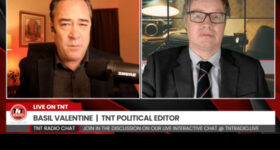By Patrick Henningsen
21st Century Wire
Oct 12, 2010
The ongoing global battle between internet users and mega-media corporations saw a rare victory for the free internet community in Ireland this week. Leading Irish internet service provider UPC won a Dublin High Court legal battle against the major record companies over online music file sharing and ISP customer privacy.
The world’s corporate music industry has been keen to institute draconian measures against ISP users in Ireland, which would be administered by traffic-monitoring equipment that would scan, flag and record all content that is shared and downloaded by all ISP customer account holders in that country.

From Napster to Limewire: ultimately it’s a case of the people’s privacy vs the music industry.
Slashdot reports: “The High Court in Dublin ruled today that there was no precedent in Irish law to force ISPs to identify and disconnect people accused of illegally downloading copyrighted files. The court case was spurred by objections to the recording industry’s three-strikes system from Irish internet provider UPC. Earlier this year, Eircom, one of Ireland’s other large ISPs, gave in and implemented the system, as we discussed previously. This resulted in many of the more ‘technical’ users leaving that ISP in droves. Nice to see an ISP willing to take a stand.”
Vodaphone, O2 and 3 Network each have lucrative, existing deals signed with the international music cartel regarding licensed music and video content for their mobile network phone users. As the mobile phone network providers continue to make serious inroads into the home ISP market, the potential for corporate collusion will certainly grow. Evidence suggests that a collusion may exist between large corporate ISPs and the music cartel in Ireland, as Vodafone Ireland and Meteor (Ireland’s third largest mobile service provider) have been engaged in private meetings with the record companies in order to lobby for their new “three strikes for fileswappers”. Should the music label cartel become successful in getting Vodafone on board, their new, albeit arguably illegal mandate, would cover nearly two-thirds of all Irish broadband households. The cartel initially sued Irish leader Eircom in order to stop its ISP customers from file-sharing by cutting off their internet broadband accounts- a move which forced Eircom into the music cartel camp, as well as sending a stark warning to other service providers who are not willing to capitulate to a blanket control of internet users throughout the country.
–














